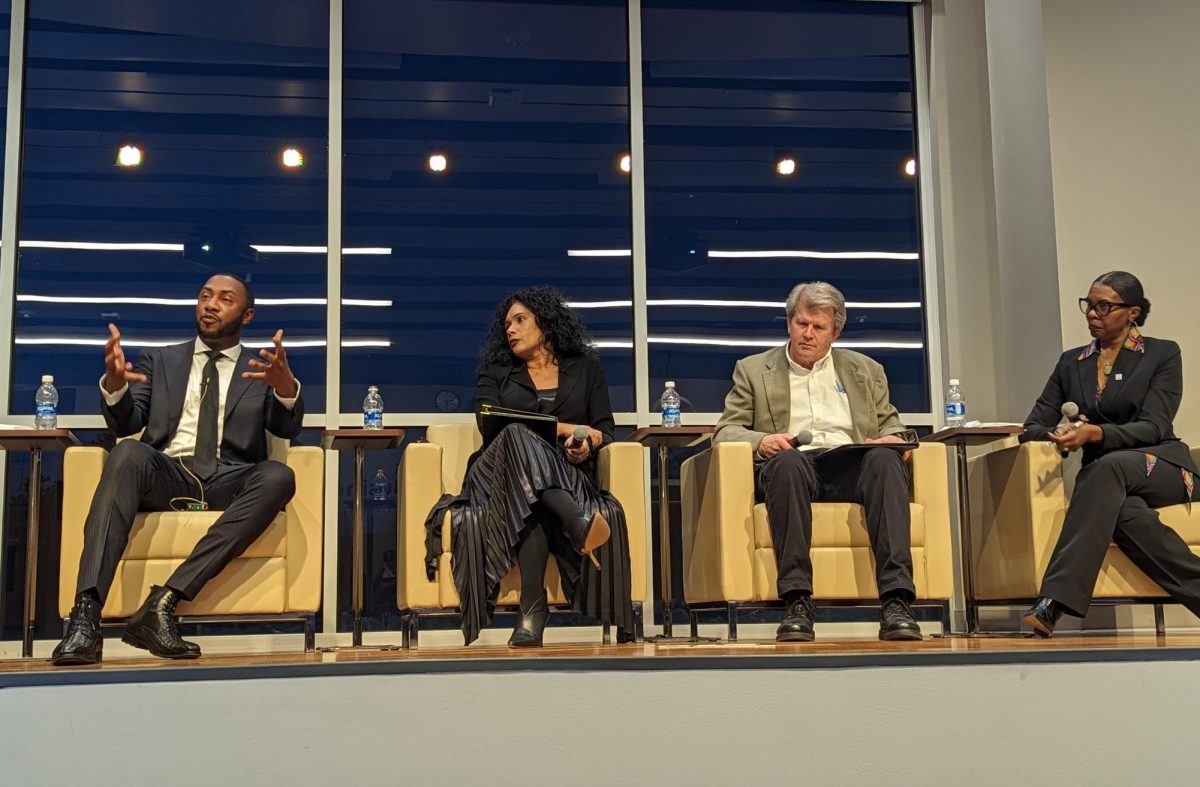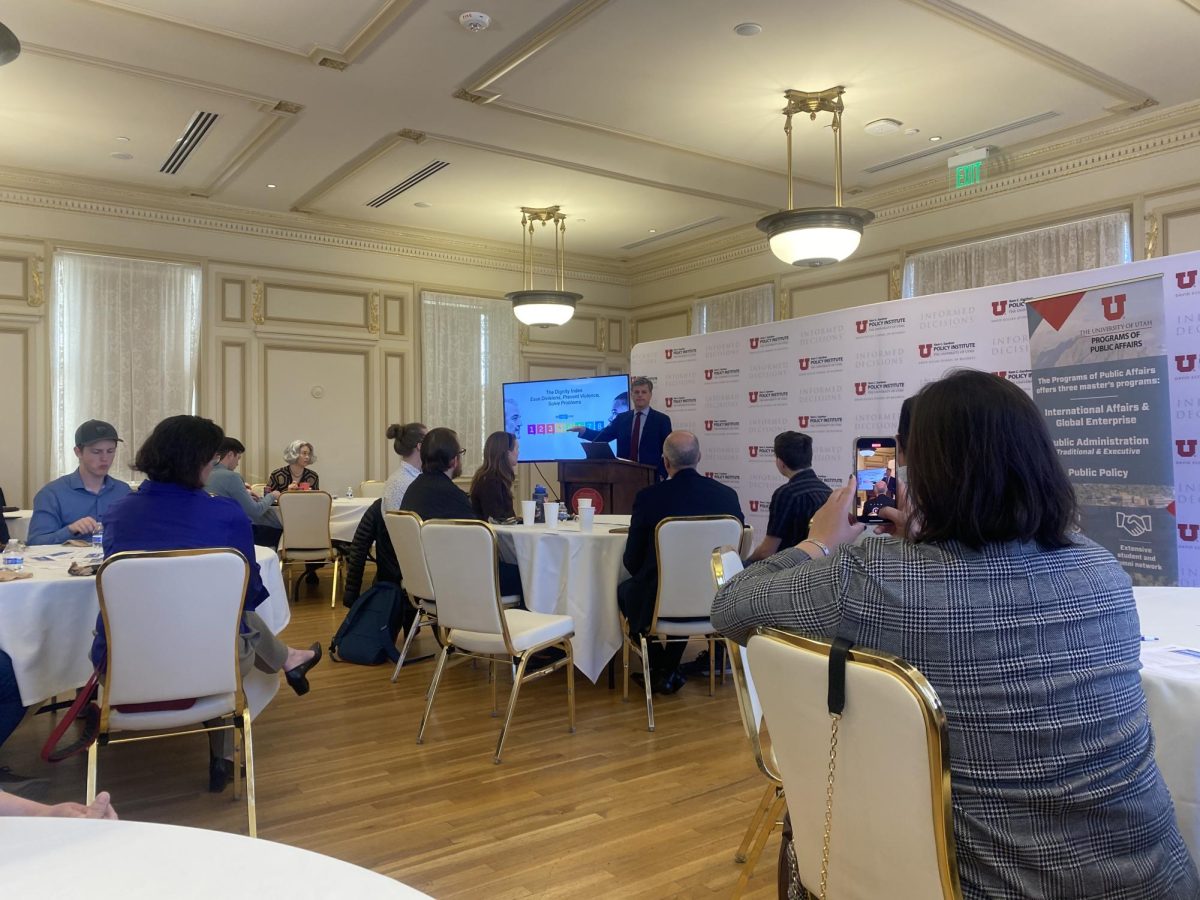
As seats in Rice-Eccles Stadium filled with football fans, research posters and doctors flooded the stadium’s fifth floor for the 2015 Global Health Conference on Extreme Affordability.
The conference featured local students and professors from the U’s medical school and national speakers from Johns Hopkins Medicine International, the G4 Alliance and the Centers for Disease Control. Ira Kraft, a second-year medical student and member of the conference’s organizing committee, said the event helped facilitate connecting parts of the U’s Global Health community.
“One of the disadvantages of being in Utah is that we’re a little bit isolated from some of the traditional big players in global health,” Kraft said. “One of the things this conference serves to do is really to share ideas between our students and faculty within the university and faculty outside the university.”
Katerina Zappas, a first-year medical student, said having professionals is critical to the problems global health hopes to address.
“Global health is not a simple issue to boil down,” Zappas said. “It’s incredibly interdisciplinary … you can’t do that alone.”
The conference sought to find affordable solutions to large problems. Antigone Kithas, a first-year medical student, said Nicholas Kristof’s keynote address about doing simple things shows that a big impact can be made in complex situations. Kithas said one example of a common item that would fix a large problem if it was better distributed is iodized salt. According to the New York Times, iodine deficiency affects two billion people worldwide but is easily attainable if a large-scale collaborative approach is taken.
In addition to discussing solutions, the conference served to give medical students guidance, which Kraft said is one of the benefits of the U’s medical school.
“One of the things that I was very surprised about when I chose to come to school here is how prominent the global health community here is,” Kraft said. “The University of Utah is really on the leading edge of nurturing student projects.”
@SeymourSkimmer





















